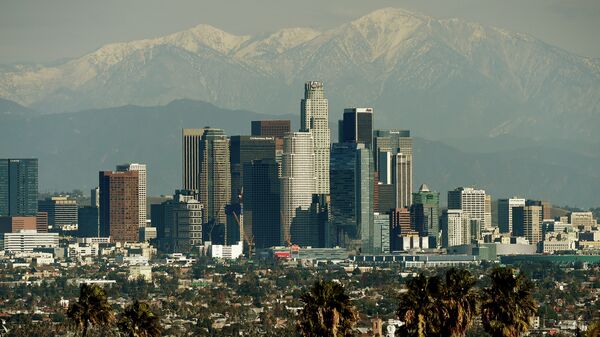The law has come amidst a heated debate unraveling between the lowest-paid working class, welcoming the move, and the owners of small businesses across the city, facing imminent hardships to finance the mayor’s initiative.
In a long-term perspective, such a move has potentially hazardous consequences, possibly undermining the economic competitiveness of LA-based enterprises, and disrupting business activity in the city.
Mayor Garcetti signed the legislation into a law after its final approval by the Los Angeles City Council, which voted 14-1 in favor of the minimum wage hike. The new law will affect some 600,000 of the lowest-paid working class. While the poor welcomed Mayor Gracetti’s speech introducing of the new law delivered in both English and Spanish, LA’s entrepreneurs are preparing for a coming slump in profitability.
"Too many Angelenos have been left behind even as we’ve put the recession in the rearview mirror," the mayor said before a crowd of trade union people, immigrants and civil activists in his Saturday’s speech.
The initiative is aimed at reducing the overwhelming poverty, plaguing Los Angeles for decades. However, such a significant rise in minimum wage – by nearly 30% in a matter of five years – is a bad sign for the city’s employers, who are likely to either move their operations out of Los Angeles or lay off personnel rather than accepting higher expenses.
"We would not have done this if we believed this would hurt our economy," Garcetti claimed in his speech. However, the picture is far from optimistic in Southern California’s real economy. While Hollywood and financial enterprises are doing well for themselves, SoCal’s industries are balancing on the verge of massive shutdowns.
The twin ports of Los Angeles and Long Beach, whose combined total turnover was roughly $400 bln in 2014, were hit this spring by union activity, causing severe disruptions in shipments, even though import-export fundamentals have been improving three years straight prior to that.
The first pay hike will occur in July 2016 and will see the wage rising to $10.50/hr.
According to Moody’s estimates, as increase of the minimum wage just to $10.10 will shrink operating margins by 2.3%, down to 9.7% from the current 12% in service companies with no more than 20% of staff affected by the hike. A hike to $15/hr, already implemented in Seattle, will trigger a doubly large decline in profitability, Moody’s said.



